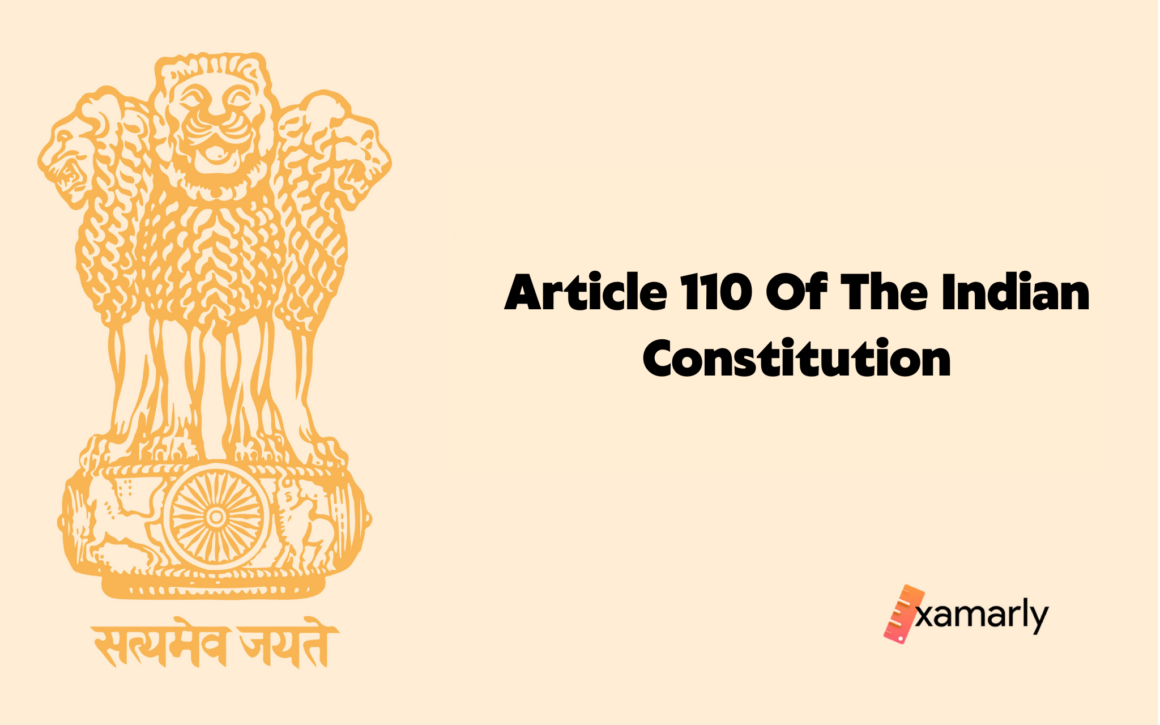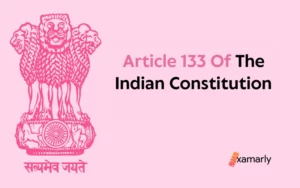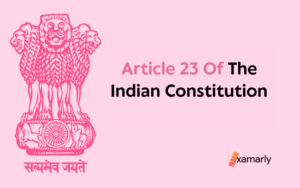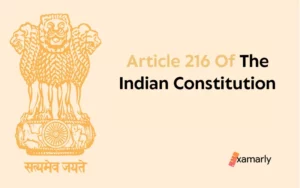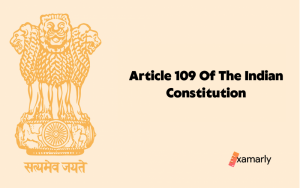Overview
Article 110 of the Indian Constitution lays down the definition of the Money Bill which is a type of Financial Bill in Parliament.
It talks about why and how a Bill shall be considered a Money Bill. What factors would contribute to the recognition of the Money Bill?
Let us dig into Article 110 of the Indian Constitution and get to know all about a Money Bill by understanding each and every clause and sub-clause present in the Article.
Article 110 of the Indian Constitution – In Detail
Clause 1 – As it is & Explained
110. Definition of Money Bill
(1) For the purposes of this Chapter, a Bill shall be deemed to be a Money Bill if it contains only provisions dealing with all or any of the following matters, namely
(a) the imposition, abolition, remission, alteration or regulation of any tax;
(b) the regulation of the borrowing of money or the giving of any guarantee by the Government of India, or the amendment of the law with respect to any financial obligations undertaken or to be undertaken by the Government of India;
(c) the custody of the consolidated Fund or the Contingency Fund of India, the payment of moneys into or the withdrawal of moneys from any such Fund;
(d) the appropriation of moneys out of the consolidated Fund of India;
(e) the declaring of any expenditure to be expenditure charged on the Consolidated Fund of India or the increasing of the amount of any such expenditure;
(f) the receipt of money on account of the Consolidated Fund of India or the public account of India or the custody or issue of such money or the audit of the accounts of the Union or of a State; or
(g) any matter incidental to any of the matters specified in sub clause (a) to (f)
Clause 1 defines what a Money Bill is with the help of all its sub-clauses. As it says that a Bill is a Money Bill if it
(a) deals with the imposition, abolition, remission, alteration, or regulation of any tax.
(b) seeks to make provisions regarding the regulation on borrowing money or if there is a guarantee that the government of India has to make. Also, if there is such an amendment that is related to any of the financial obligations that have to be undertaken by the Government of India.
(C) it is related to transactions like deposits, withdrawals, or payments of money in the prominent funds of the Indian Government such as the Consolidated Fund or Contingency Fund Of India.
(d) deals with the probable calculation of the sum that has been taken out of the Consolidated Fund Of India.
(e) it has provisions that declare expenditures charged on the Consolidated Funds of India on any expenditure. Also, if the expenditure in the same is increasing.
(f) it is dealing with the receipt on account of the Consolidated Fund Of India or the public account of India. Also, if it deals with the authority to audit the accounts of the Union or State or to issue money.
(g) it deals with anything that is present in the sub-clauses (a) to (f).
Related Articles
- Article 107 Of The Indian Constitution
- Article 108 Of The Indian Constitution
- Article 109 Of The Indian Constitution
Clause 2 – As it is & Explained
“(2) A Bill shall not be deemed to be a Money Bill by reason only that it provides for the imposition of fines or other pecuniary penalties, or for the demand or payment of fees for licences or fees for services rendered, or by reason that it provides for the imposition, abolition, remission, alteration or regulation of any tax by any local authority or body for local purposes”
The second clause of Article 110 of the Indian Constitution says that a Bill will not be considered a Money Bill for only the reason that it is imposing fines and penalties or demanding payment fees for licenses. It shall also not be considered a Money Bill if it is demanding fees for the services provided. Even if the Bill is imposing, abolishing, waving off, altering, or regulating any tax by any local authority for local purposes.
Clause 3 – As it is & Explained
“(3) If any question arises whether a Bill is a Money Bill or not, the decision of the Speaker of the House of the People thereon shall be final”
The third clause of the Article says that if there arises a situation where a Bill in the House is Questioned on whether or not it is a Money Bill, then the decision of the Speaker of the House shall be the final decision.
Clause 4 – As it is & Explained
“(4) There shall be endorsed on every Money Bill when it is transmitted to the Council of States under Article 109, and when it is presented to the President for assent under Article 111, the certificate of the Speaker of the House of the People signed by him that it is a Money Bill”
The fourth clause of Article 110 of the Indian Constitution says that after the Bill gets transmitted to Lok Sabha back from the Rajya Sabha, the Money Bill has to be endorsed by the Speaker when presented further to the President of India for his assent as per Article 111. The speaker has to sign it saying that it is a Money Bill.
Summing Up
We can conclude from this article that Lok Sabha has more authority over Rajya Sabha on Money Bills and also The Speaker holds pivotal power in the decision on the question of a Money Bill.


